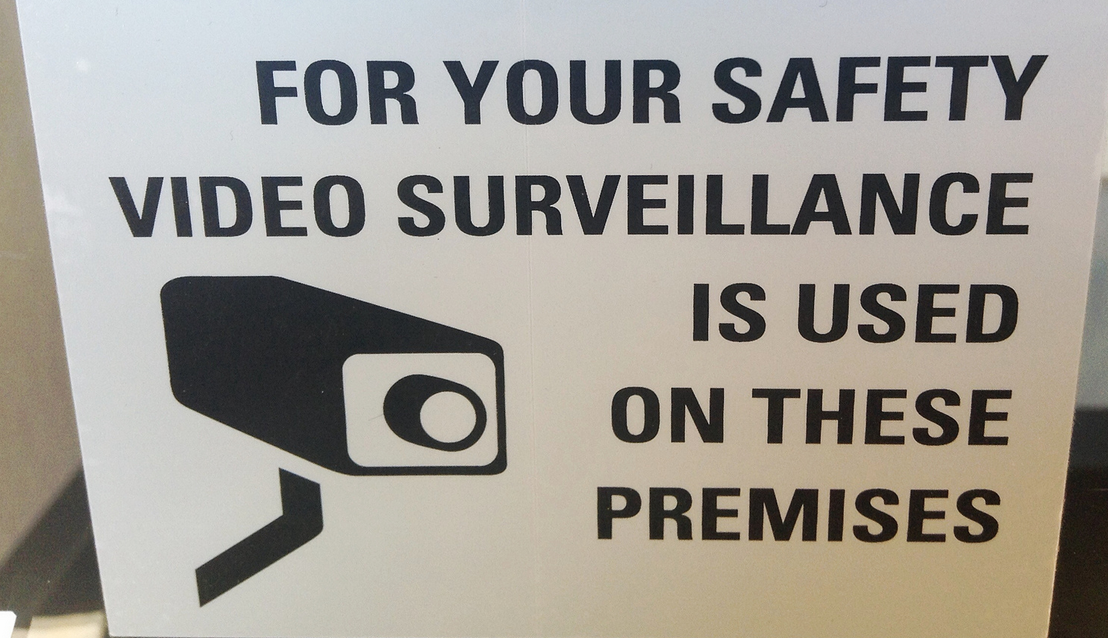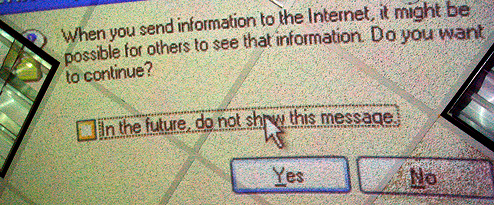After a report this week claimed Yahoo built a tool specially designed to help U.S. intelligence and law enforcement agencies eavesdrop on its email users’ conversations, the tech company has issued another, lengthier response, without flat out denying anything. [More]
snooping

Yahoo Reportedly Built Tool To Snoop On All Its Emails For U.S. Government
It’s one thing to comply with a court order from law enforcement seeking access to a user’s email account; it’s another to build a tool specifically to help U.S. intelligence and law enforcement agencies eavesdrop on those online discussions. A new report claims that Yahoo did just that last year by creating a program that allowed the company to scour all of its messages on behalf of the government. [More]

FCC To Consider Rules That Would Make ISPs Get Permission To Share Your Personal Info
There’s a reason they call this century the information age: everything is data, data, data. And today, the FCC announced a proposal that would regulate how ISPs — over which all that data flows — have to get your permission to collect and share all that juicy, valuable information. [More]

Court Rules NSA Phone Data Collection That Is Now Changing Anyway Is Still Legal
After several years of back-and-forth rulings, an appeals court in Washington, D.C. has ruled today that the NSA’s controversial bulk phone data collection program can indeed continue… at least until November, when it gets shut down anyway because Congress changed the law in June. [More]

Court: NSA Bulk Phone Data Collection Program Is Illegal
A federal appeals court has ruled this morning that the NSA’s controversial bulk phone data collection program is in violation of federal law. [More]

DEA Sued Over Secret Mass Surveillance Of Phone Calls
The backlash against the federal government’s surveillance programs continues. This time, the folks at Human Rights Watch have filed suit against the U.S. Drug Enforcement Administration, alleging that the DEA’s bulk collection of data related to certain phone calls made by the organization runs afoul of basic protections afforded by the Constitution. [More]

John Oliver Gets Edward Snowden To Explain Government Snooping In Terms Of Penis Photos
By June 1, Congress must decide whether or not to reauthorize certain sections of the controversial USA Patriot Act (aka the Uniting and Strengthening America by Providing Appropriate Tools Required to Intercept and Obstruct Terrorism Act), but even though it’s been nearly two years since former National Security Agency contractor Edward Snowden revealed the NSA’s massive and far-reaching data collection programs, many Americans either are only vaguely aware or don’t understand because it’s not easy to immediately see how things like PRISM and MYSTIC affect your daily existence. That’s why John Oliver not only went straight to Snowden for an explanation of these programs, but to have him put the snooping in terms many Internet-era perverts can understand: penis photos. [More]

Wikimedia, Amnesty International, Others Sue NSA Over Mass Surveillance
The foundation behind Wikipedia, along with several other high-profile non-profit organizations, has sued the National Security Agency challenging its “suspicionless seizure and searching of internet traffic” in the U.S., claiming that this mass data collection goes beyond what the law allows the NSA to collect and that it violates protections afforded by the Constitution and the Bill of Rights. [More]

Privacy Advocates Sue DOJ For Info About Planes Used To Snoop On Cellphones
Last November, a Wall Street Journal report pulled back the covers on a U.S. Marshals Service program that uses small planes carrying devices that mimic cellphone towers, allowing them to track criminals but also scoop up information from countless other phones of citizens not involved in any crimes. After months of trying to get more details on the program, one consumer privacy advocacy group has sued the Dept. of Justice hoping to compel the release of this information. [More]

Hacking Your Spouse's Email Could Land You In Jail For Half A Decade
Before you consider snooping in your spouse’s email, you may want to pay close attention to a case unfolding in Michigan in which a man faces up to five years of prison for hacking into his wife’s messages. [More]

Google In Hot Water For Collecting Data From Your Wireless Networks
A group of attorneys general have decided to go ahead with a multi-state investigation of the Google Streets View project after it was revealed that the cars it uses to capture the images were also capturing data from people’s home and business wireless networks. The capturing was done in 30 countries and the government of France says that it included people’s passwords and email.
Google says they were capturing the data “inadvertently” and that the quality of the data was poor because the cars were moving. [More]

Sears Settles With FTC Over Spyware Charge
In 2007 and 2008, Sears invited select customers to join the exclusive “My SHC Community,” which involved installing an app that would monitor online browsing in exchange for $10. The app was called spyware by researchers and the FTC, because the data it collected on customers included “details from their online shopping, bank statements, drug-prescription records, video rentals, library-borrowing histories, even the names and addresses of their e-mail correspondents,” as well as “data about the users’ computers, printers, and other devices.”

ISPs Are Maniacal Stalkers Who Read Your Email And Watch You Surf The Web
Internet service providers are actively tracking 100,000 users, reading every email they send and every website they visit, according to the Washington Post. The report coincides with a damning Associated Press investigation of ISP contracts which finds that they reserve broad rights to read essentially anything you view on the internet without any intervening supervision or regulation.





How Your Online Life Can Mess With Your Credit
Blogging at SF Gate, personal finance expert and author Erica Sandberg writes about how things you do online — including your choice of friends in social networking sites and even comments you leave on blogs — can influence creditors. [More]